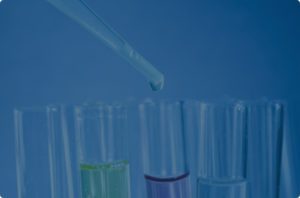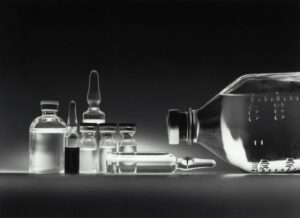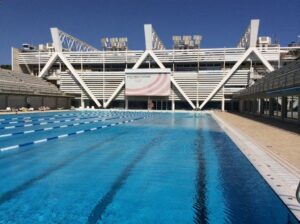12/12/2022 | Environmental | 8 MINUTE READ
The Pros and Cons of Recycling Car Wash Water
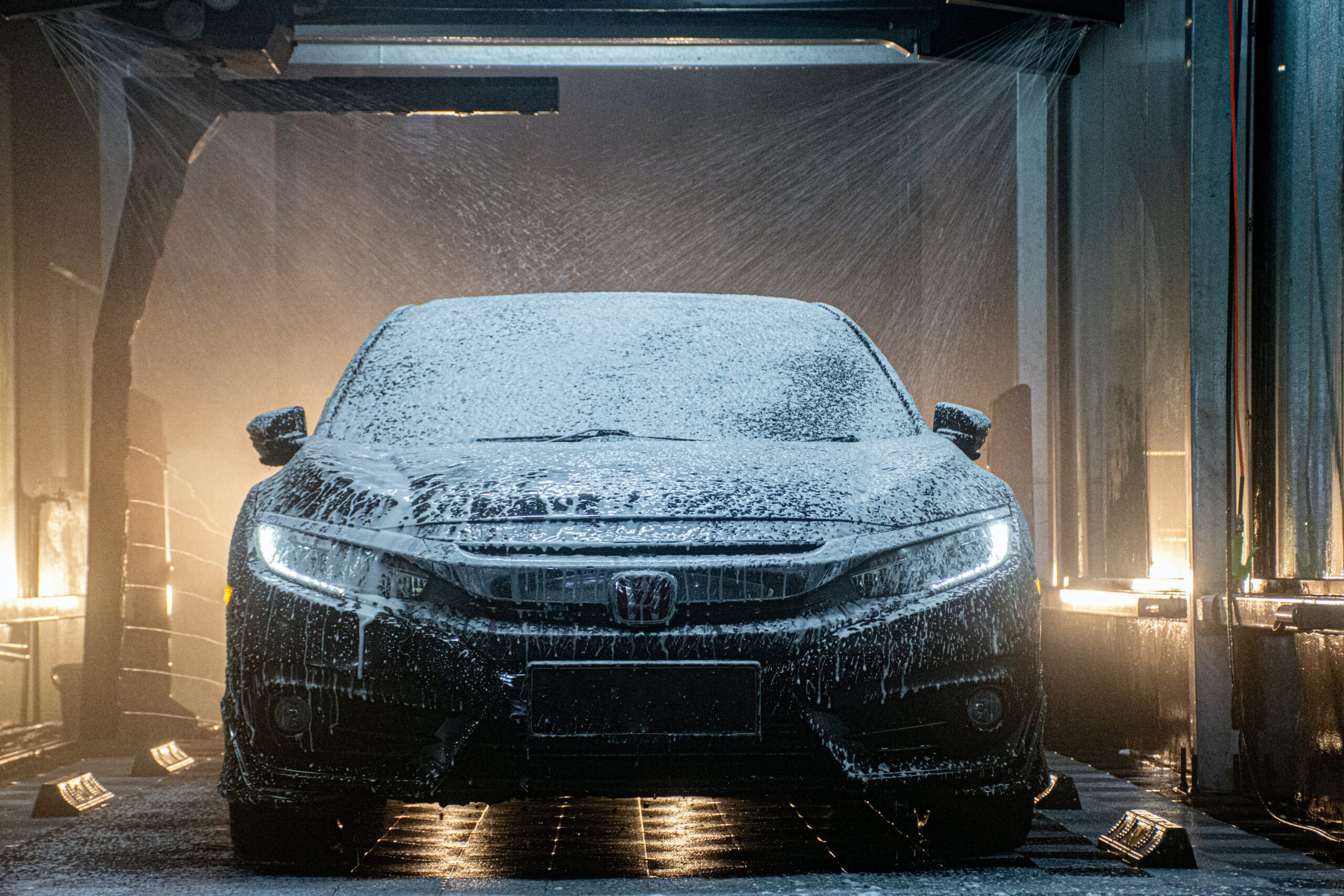
At first glance, using recycled car wash water seems like a great idea because of the possibility to conserve water and reduce the amount of water consumption your facility has. However, there are many factors that go into car wash water, which include municipality issues as well as other water treatment scenarios that you would need to take into account.
Even though there are steps that can be taken to improve the car wash solution that you use, the water will always have issues if the municipal water supply isn’t properly treated. The only way to mitigate these problems is by changing the water quality directly with the use of modern car wash equipment and technology.
The various technologies you can use to save water and improve its quality include filtration, recycling, changing the water chemistry, and improving the finishing rinses that are used. The following offers an in-depth guide on the advantages and disadvantages of recycling car wash water.
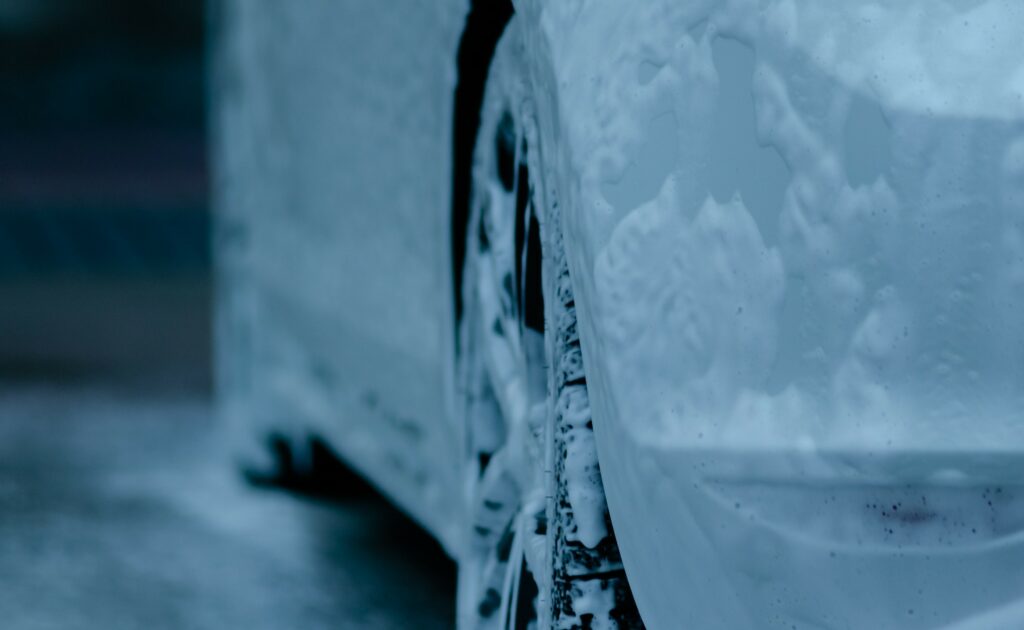
How Much Water is Used in a Car Wash?
To understand how valuable recycled car wash water can be, you should know the amount of water that’s used during a typical car wash. The amount of water needed for an automatic car wash mainly depends on:
- Any extra services that are purchased
- The number of high-pressure applications that are being implemented
- If a touch-free wash or soft-touch wash has been selected
- If the car wash is a drive-through tunnel or in-bay service
Let’s say that a car wash is being performed in an in-bay system, which involves a vehicle remaining still while soft-cloth foam brushes move over the vehicle’s exterior to wash away any debris and dirt. In this scenario, around 35 gallons of water are used for every vehicle. If the car wash is located in a high-volume area where 100 cars are washed per day, as much as 3,500 gallons of water could be used every day.
As for a touch-free wash, this type of car wash relies mainly on high-pressure spray and strong chemicals as opposed to the soft brushes used with an in-bay system. In most cases, the touch-free wash will use as much as 70 gallons of water per vehicle. If the car wash is located in the same high-volume area, it would use up to 7,000 gallons of water per day, which is double that of the soft-cloth alternative.
While many industries and facilities use the same amount of water, the aforementioned numbers are on the low end. If a tunnel car wash is outfitted with numerous high-pressure applications, it could use up to 120 gallons of water for every vehicle, which makes the total amount of water used per day much higher. Tunnel car washes are also capable of accommodating up to 400 vehicles each day, which results in daily consumption of 48,000 gallons.
The Hand-wash Water Saving Myth
There’s a commonly held myth that washing a vehicle by hand uses much less water when compared to an in-bay car wash. However, the reality is that the amount of water consumed when hand washing a vehicle is higher than an in-bay car wash. When you use a hose to wash your SUV, car, or truck, it’s likely that you’ll end up using upwards of 80-140 gallons of water for a 10-minute wash, which is substantially higher than the 35-120 gallons used in an automatic wash.
In the event that your hose is outfitted with a spray nozzle that turns off when you’re away from your car or you only use the hose for a small rinse of your vehicle, you can lower your water consumption to around 22-30 gallons per wash. However, there are several additional problems associated with a driveway wash.
When washing a vehicle on your own, you’ll be using chemicals as well as water. When you rinse away the chemicals you’ve placed on your vehicle, they will reach the ground and likely seep into the septic system, sewer system, and groundwater supply. Eventually, these chemicals will enter lakes, oceans, and streams, which does extensive damage to the environment. These hazards are mitigated when using a recycling system for your water.
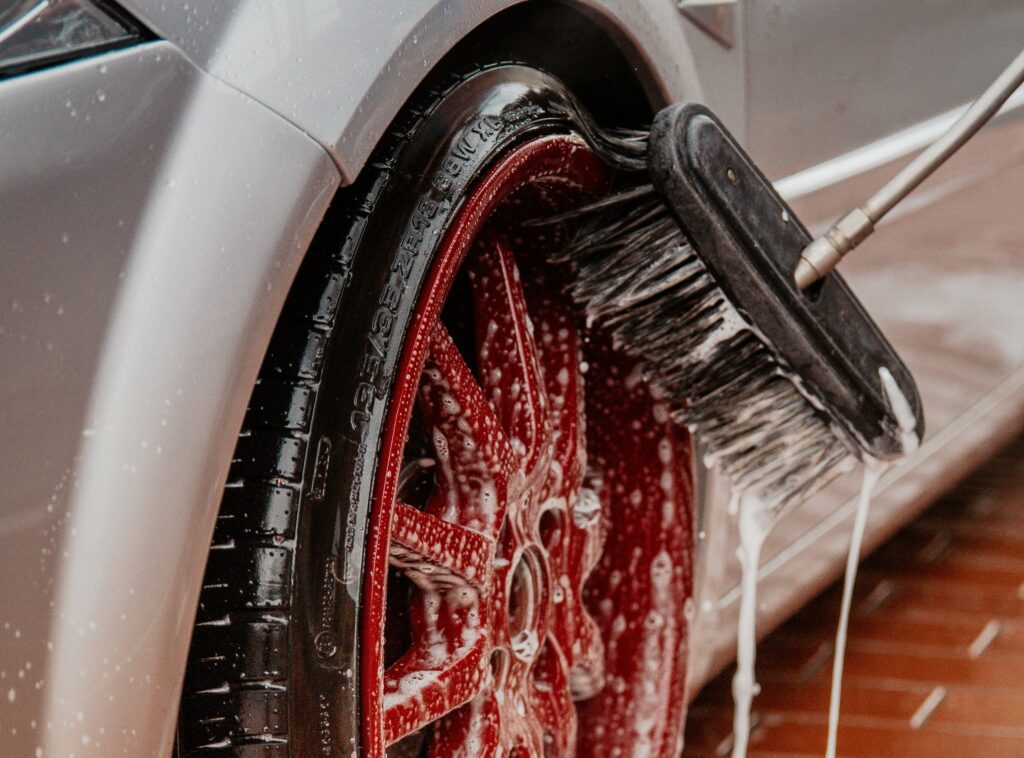
How Does a Car Wash Recycling System Work?
Car wash owners who want to reduce the sewer and freshwater costs they pay can have recycling systems installed in their washes. A large percentage of municipalities require that these systems be installed in order for a car wash provider to meet the local building code and obtain a permit.
Water recycling systems are stand-alone units that work alongside car washing equipment. Keep in mind that not all of these systems have the same features and build quality. If the system obtains water from a spacious settling tank, it will process this water to get rid of any leftover chemicals and contaminants. After the water has received its initial treatment, additional treatments are applied to get rid of foul odors. Once this step is completed, the processed water will be sent back to the main system to be reused.
If there are any clay or sand particles in the water when it’s reused, the paint on the vehicle could be damaged, which is why these particles must be removed beforehand. There are a large number of car washes that provide extra services, which can include applying a shine wax or surface protectant. The water in the recycling system can’t contain any of the substances that are used for these services.
There are many reasons why car wash owners benefit from using recycling, the primary of which is that the majority of the water that will be used to wash the vehicle comes from the recycler as opposed to freshwater. Not disposing of the water after the initial use also results in sewer costs dropping.
It’s also possible for the freshwater you obtain to have too many contaminants before any cars have even been washed. In this scenario, the water will need to be treated beforehand, which is made much easier if a recycling system has already been installed in your facility.
In the event that you wash your vehicle at home, you would invariably use too much water and wash detergents and chemicals into the nearby sewer system and water supply. Using an automatic car wash ensures that water is disposed of according to local rules and regulations. The amount of waste that’s generated when a recycling system has been installed in your facility is significantly lowered, which means that not as much freshwater will be required. If the automatic car wash system is maintained properly, it should be better for the environment when compared to hand washing.
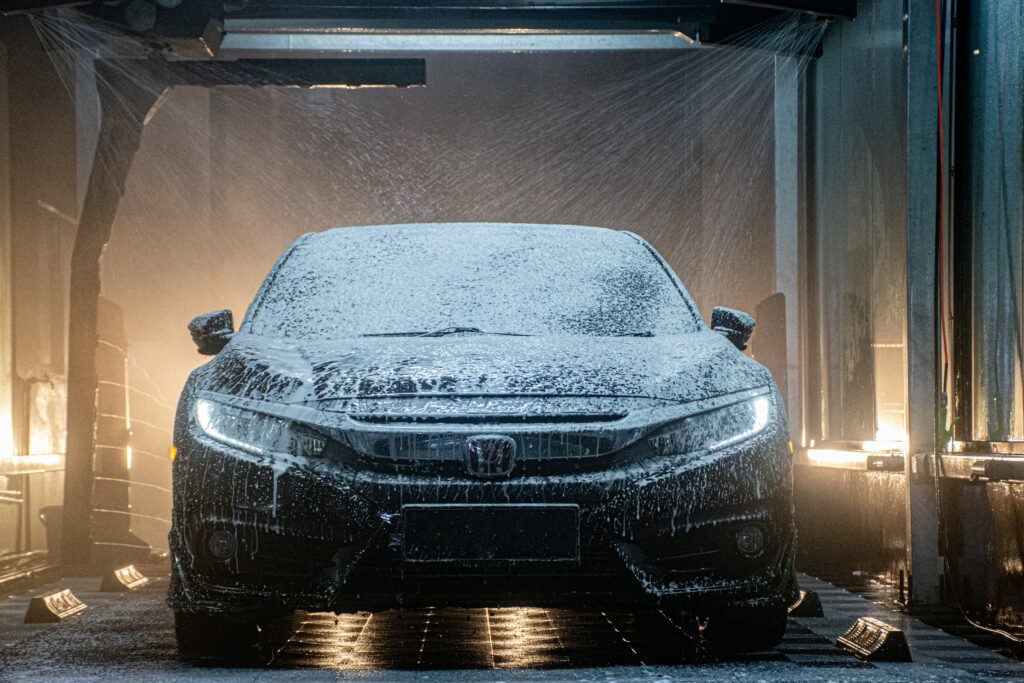
The Pros and Cons of Recycled Car Wash Water
There are both pros and cons that come with using recycled car wash water in your facility. Weighing these pros and cons should help you determine if this type of system is right for you.
The Pros of Recycled Car Wash Water
The main benefit of using recycled car wash water is that this water is more Eco-friendly. When you install a recycled water system, the used wash water is able to be restored to a quality that’s relatively high and free from contaminants. Once this water has been cleaned, it can be used for additional washes in the future.
By effectively reducing the amount of freshwater your facility uses and lowering the waste that’s being released into the environment, you’re taking steps to protect the environment and make sure that your facility adheres to EPA regulations.
Another benefit of recycled car wash water is that this water offers a more economical method of cleaning cars. Your business will save money in two separate phases of the car wash. When you use less freshwater, the water consumption costs you pay will drop significantly. If the water doesn’t go down the drain, your sewer expenses will drop as well.
The Cons of Recycled Car Wash Water
Even though recycled car wash water can be highly advantageous for businesses, there are also a couple of issues to be aware of. For one, this process involves high upfront costs for new equipment. Replacing old equipment is always going to be pricey. On the other hand, the high upfront costs should eventually be outweighed by the lower sewer and water costs.
Another issue is that the water recycling system you use needs to be able to get rid of the suspended solids that build up in car wash water. As mentioned previously, clay and sand particles will damage a car’s paint and may worsen the quality of the reused water if it isn’t treated properly.
Before you outfit your car wash with a water recycling system, make sure that you have the equipment needed to treat water in a manner that reduces dissolved solids, waxes, detergents, and used chemicals. You can determine the concentration of total dissolved solids in the water by using a pH sensor or conductivity sensor. These sensors will give you precise readings on how contaminated the water is. The readings you obtain before treating the water can be compared against the readings you get after treatment.
If you want to start using recycled car wash water in your facility, it’s highly recommended that you consider all of the pros and cons associated with this process. Like any major change in business operations, there are some upfront costs that will need to be taken into account. However, the long-term economic and environmental benefits may outweigh the negatives for you.
Posted by Dominic O'Donnell on December 12, 2022
Sensorex is a global leader in the design and manufacture of quality sensors for water quality and process applications. The company offers more than 2000 sensor packages for pH, ORP, conductivity, dissolved oxygen, free chlorine, chlorine dioxide, UV transmittance and other specialty measurements, as well as a full line of sensor accessories and transmitters. Its expert technical support engineers solve analytical sensor challenges with custom designs and off the shelf products.
